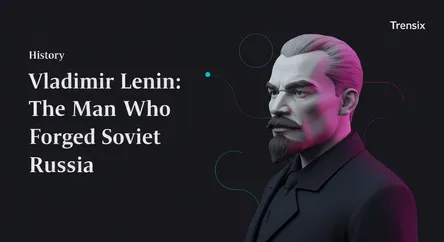History
Vladimir Lenin: The Man Who Forged Soviet Russia

An essential overview of Vladimir Lenin, the revolutionary leader who masterminded the Bolshevik Revolution and founded the world's first communist state.
What is it?
Vladimir Ilyich Ulyanov, better known as Lenin, was a Russian communist revolutionary, politician, and political theorist. He was a key figure in the Russian Revolution of 1917 and served as the first head of government of Soviet Russia from 1917 to 1924 and of the Soviet Union from 1922 until his death. An ideological Marxist, his specific interpretations and adaptations of Marxism are known as Leninism. He founded the Bolshevik faction of the Russian Social Democratic Labour Party, which seized power during the October Revolution, establishing a one-party state under the Communist Party.
Why is it trending?
Lenin remains a perpetually significant and controversial historical figure. His leadership in the October Revolution fundamentally altered the course of the 20th century, creating a bipolar world order defined by the Cold War. His theories on imperialism and the state continue to be studied and debated by political scientists, historians, and activists. Events in modern Russia and former Soviet states often lead to re-examinations of his legacy, ensuring his ideas and actions remain relevant in contemporary geopolitical discussions.
How does it affect people?
Lenin's actions had a profound and lasting impact on global society. For millions, he was the architect of the Soviet Union, a state that promised a workers' paradise but often resulted in authoritarian rule, civil war, and economic hardship. His model of a revolutionary vanguard party and a one-party state was replicated in countries across the world, from Eastern Europe to Asia and Latin America, influencing countless lives and political struggles. The dissolution of the Soviet Union has not ended his influence, as his legacy continues to shape political ideologies and national identities today.